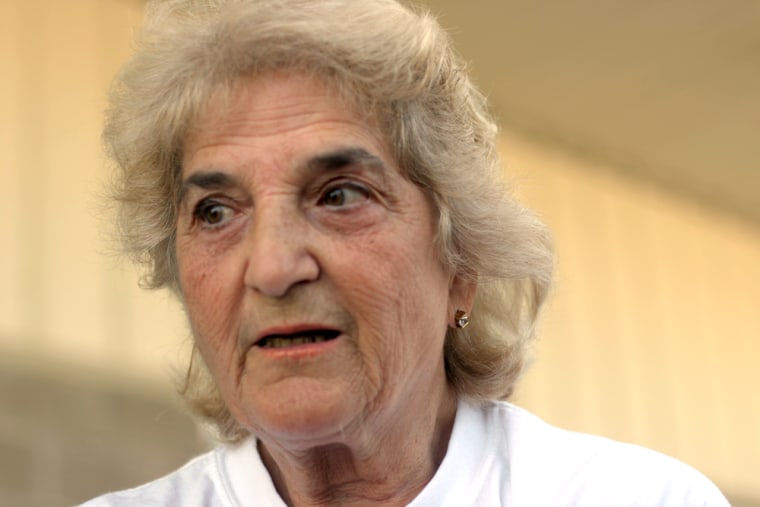Gisele “Gigi” Brown, 73, of St. Bernard Parish, La. Owner of an uninsured mobile home worth approximately $20,000.
Giselle “Gigi” Brown was never really lost, but for many weeks she was unable to contact her friends in Louisiana’s St. Bernard Parish, most of whom also were scattered to the winds or rendered incommunicado by Hurricane Katrina.
MSNBC.com’s reporters first met the 73-year-old Brown at a Red Cross shelter in Hattiesburg, Miss., just days after Katrina crashed ashore. But by the time we launched our “Rebuilding Lives” series on the one-month anniversary of the storm, she had vanished from our radar: She was no longer at the shelter, but no one there could say where she’d gone. The Federal Emergency Management Agency wouldn’t comment on whether she’d been put up in a trailer or a hotel because of privacy rules and none of the phone numbers of her friends in battered St. Bernard’s Parish was working.
We finally re-established contact in mid-November, when a friend pointed us to an encampment of FEMA trailers in the Little Black Creek area on the outskirts of Hattiesburg, where Brown has been living next door to her longtime friend Janet Kaufman since Sept. 16.
‘I'm here and I'm OK’
“I’m here and I’m OK,” she said by phone. “You can come over down here and check us out.”
Brown, a widow whose only living relatives are a brother who is in the midst of moving to France and an estranged granddaughter, said she’s able to make ends meet for the time being with her Social Security payment of $398 a month, a check from the Veterans Administration for $169 and food stamps.
“So far I’m doing OK with that because I don’t have any rent or anything else to pay other than gas and electricity,” she says.
But the long-term prospects of replacing her uninsured mobile home in the community of Poydras, southeast of New Orleans, remain very much in doubt.
She finally ventured home in early November to see the mobile home, which was in an area that was flooded at least 15 feet deep, and had her worst fears confirmed.
Home is ‘pretty banged up’
“It’s pretty banged up, turned upside down,” she said. “... It was totally covered with branches and trees.”
She couldn’t summon the courage to try and get inside and see if any of her belongings could be salvaged, though she is hoping to return in early December to do that.
In the meantime, while she is grateful for the trailer that FEMA has provided for 18 months, Brown is plagued by questions about her future beyond that.
“When I first talked to FEMA it was mentioned ... that they probably would (replace the trailer),” she says. “I hope so. If not, I wouldn’t have nowhere to go.”
But Rachel Rodi, a FEMA representative in Louisiana, said it was likely that Brown misunderstood what she was told when she called the agency's Katrina hotline.
"We don’t have any kind of special program that replaces trailers," Rodi said. "She may have been been told that your property is eligible for a mobile home placement (rather than a replacement)."
Rodi did say that Brown would have an opportunity to purchase the FEMA trailer she has been living in at the end of the 18-month rent-free period at a "fair market price."
